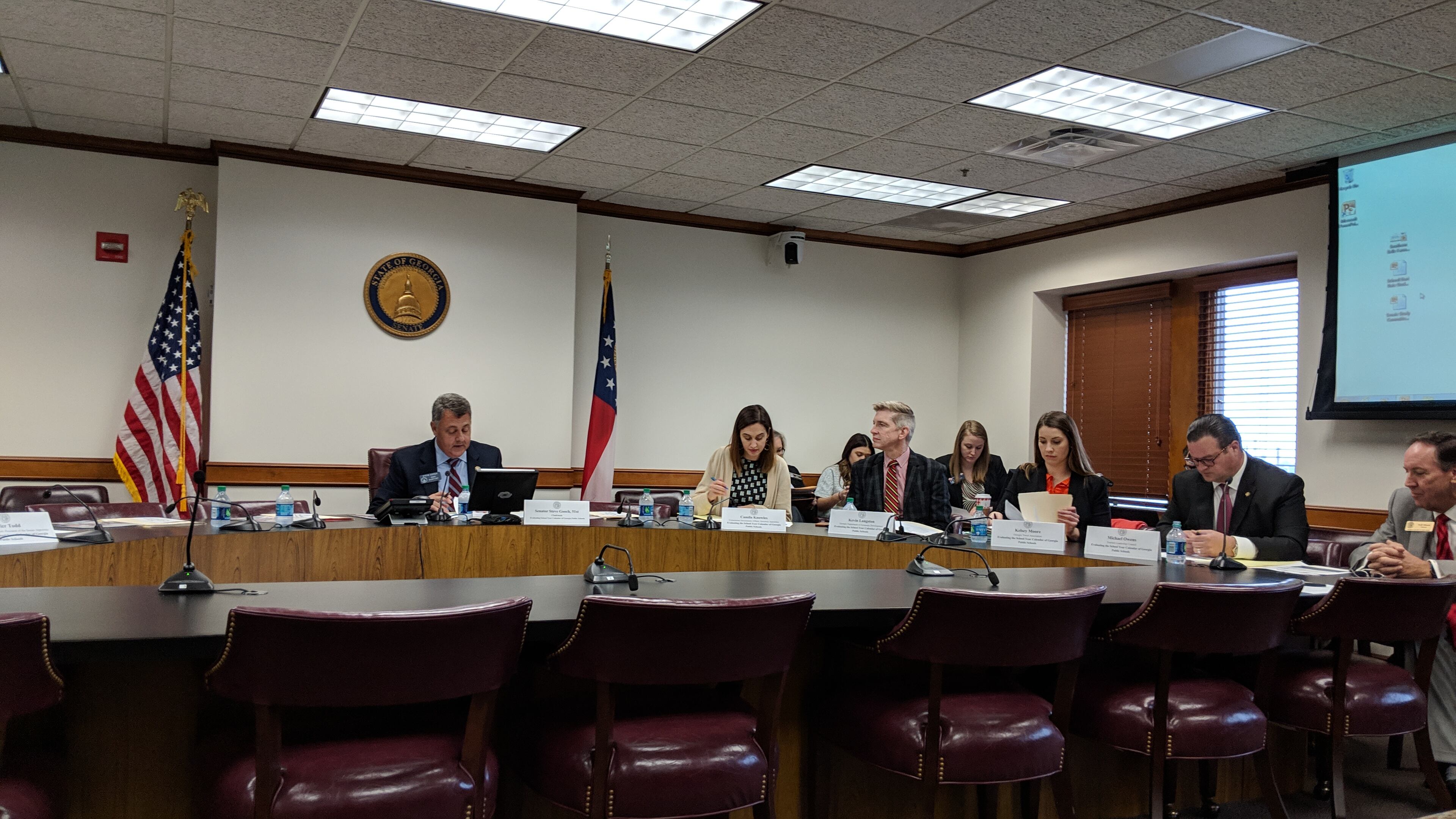Lawmakers consider changing school calendars

Georgia lawmakers considering more uniformity in the setting of school calendars heard Wednesday from state education officials, child advocates, a school boards lobbyist and a family farmer who caters to tourists.
The committee comprises a mix of elected officials and appointees, including representatives of the tourism industry. The goal: decide whether the state should establish a uniform policy for school attendance, preferably with a longer summer break, or continue to let 180 school districts set different calendars.
The tourism industry complains about short summer breaks and a dearth of youths available to staff part-time jobs during the travel season, plus a hodgepodge of inconsistent calendars. School advocates say they need flexibility to time school for local needs and to give teachers time to recover.
Michael Owens, an appointee who is president of the Tourism Leadership Council, said tourism-related businesses aren't the only ones pinched by way Georgia schedules school. He's talked with a variety of companies, including a Savannah jeweler, who said they were harmed.
"They're talking about negative impacts to retail," he said. "I talked to a furniture store owner today."
The only businessman who presented to the panel Wednesday was Jake Carter, who presented himself as a fifth generation family farmer in McDonough. As the area grew and other farms sold, the family went into tourism, inviting the public to pick strawberries and blueberries and to milk cows, though they’re mostly mascots at this point. He said he employs about 125 high school students part-time, mostly in the fall.
A lobbyist for the Georgia School Boards Association urged the committee to let school districts control their calendars, so they can accommodate local events and other needs, such as breaks for teachers. Child advocates talked about learning loss while school is out, but said the research shows it is the same whether it occurs over a three month summer break or a two month break with several other weeks scattered throughout the school year. They argued that the state should fund enriching after-school activities regardless of any changes with school attendance law.
And officials from the Georgia Department of Education said there is no law about a school calendar, except for a mandate for 180 days attendance. And the state has waived that requirement for 173 school districts due to “flexibility” contracts. The officials said they’ve pushed the timing for state testing as much toward the end of the school year as possible. School districts build their schedules around that testing window, maximizing the prep time and building in a cushion for remediation so low scorers can retest before the year ends.
Despite that remediation, about a third of third grade students are behind in reading and the percentage rises by only 5 points by eighth grade.
"There's still a lot of work to do there," said Sen. Steve Gooch, R-Dahlonega, chairman of the committee.
“Yes sir,” responded Allan Meyer, one of the education department officials.
Gooch established the committee, citing air conditioning costs for school buildings when they have to open in August, the timing of family vacations and the needs of the tourism industry, which must cater to visitors from counties or states where school starts and ends at different times.
A committee report is due in December, but Gooch said he wants to hold one more meeting to hear from the travel industry before next year’s legislative session starts in January.



